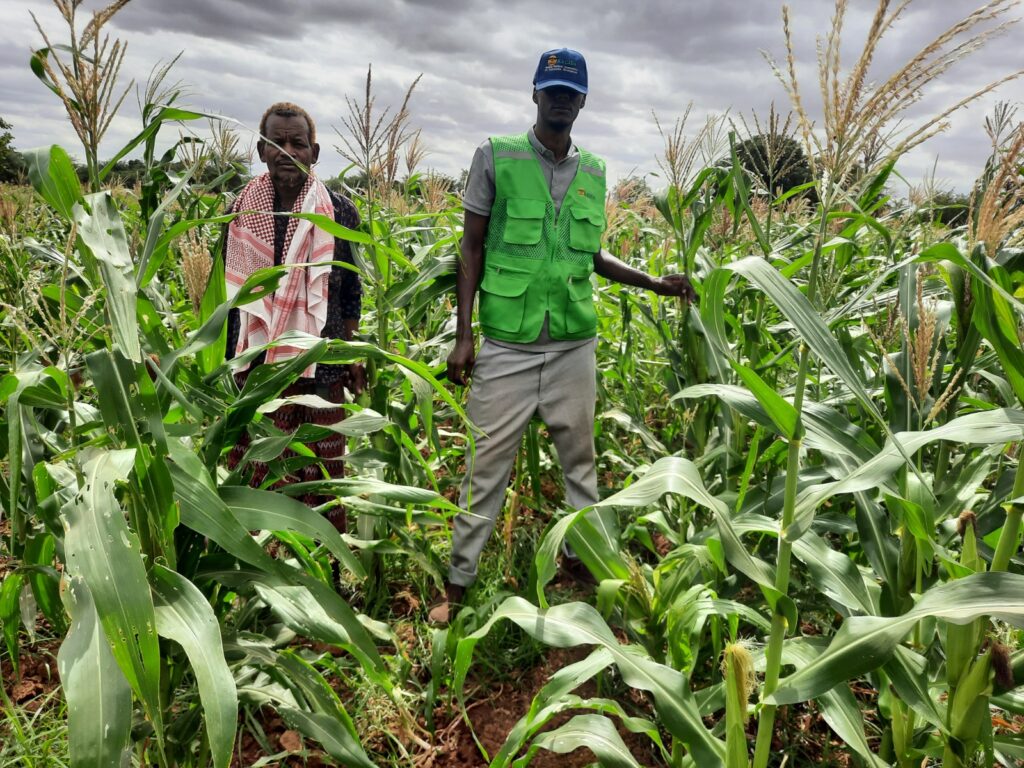
BY AHMED HUSSEIN:
Agriculture, the lifeline of many rural communities, faces unprecedented challenges due to climate change. Increasingly erratic weather patterns, such as droughts, heatwaves, and floods, severely impact food security and poverty reduction efforts, particularly among smallholder farmers reliant on rain-fed agriculture. While climate-resilient crops and farming practices offer a promising solution, their adoption among small-scale producers remains inconsistent. In recent years, RACIDA has been working with Agro-pastoral farmers to empower them and foster sustainable agricultural practices The Rural Agency for Community Development and Assistance (RACIDA) has promoted resilient agriculture in the Horn of Africa region, working tirelessly with international development partners, governments, and small-scale farmers. One of RACIDA’s impactful projects, the Building Resilience of Agro-Pastoralist Communities (BRAP) project, has brought transformative benefits to farmers in Mandera and Wajir Counties in Kenya and the Liban Zone of Ethiopia.
The BRAP project, funded by the German Federal Ministry of Economic Cooperation and Development (BMZ), Diakonie Katastrophenhilfe (Diakonie Emergency Aid), and Brot für die Welt (Bread for the World), aims to build resilience among agro-pastoralist communities severely affected by recurrent droughts, floods, and conflicts. By providing training, agricultural inputs, and critical infrastructure, the project has significantly enhanced the livelihoods and coping capacities of these vulnerable populations. In Kenya and Ethiopia, 950 farmers were trained in sustainable dryland farming techniques, including the use of drought-resistant seeds such as maize, beans, and sorghum, alongside essential tools such as hoes and machetes. In addition, 590 farmers received inputs and training for producing and managing Sudan grass, a vital fodder crop, with tools such as machetes, hosepipes, and sickles, enabling efficient fodder cultivation and storage.
These interventions have led to increased agricultural productivity, ensuring food security even in adverse climatic conditions. Farmers have reported better crop yields and more reliable sources of fodder for their livestock thereby stabilizing their income and food supply. Livelihood diversification efforts included introducing beekeeping as an alternative livelihood in the counties of Mandera, Wajir in Kenya as well as the Liban Zone of Ethiopia.
Diversifying income sources has reduced dependency on pastoral livestock keeping, providing a buffer against economic shocks.
The success of the BRAP project underscores the importance of climate-resilient agricultural practices and partnerships in rural communities. Governments and policymakers across East Africa can draw valuable lessons from this initiative, including investing in resilient agriculture, promoting inclusive policies, strengthening community-based approaches, and enhancing collaboration between governments, intergovernmental, and international organizations, and local communities.
RACIDA has taken proactive steps to promote resilient agriculture among smallholder farmers. Key initiatives include food production training programs aimed at boosting productivity and resilience, empowering women by educating them on the use of nutritious feed for livestock health and productivity and distributing high-value vegetable seeds to foster sustainable agriculture and enhance food security.
Recognizing the challenge posed by drought, RACIDA has distributed drought-resistant seeds to smallholder farmers, encouraging them to cultivate crops that can thrive under dry conditions.
Despite the benefits of climate-resilient crops, adoption rates among smallholder farmers remain variable. Key challenges include access to information, financial constraints, and cultural practices. However, these challenges also present opportunities for innovation and collaboration. By involving local communities in decision-making, providing targeted financial assistance, and leveraging technology for information dissemination, the adoption of resilient agriculture can be accelerated.
Resilient agriculture is not just a strategy for adapting to climate change; it is a necessity for ensuring food security and reducing poverty in vulnerable rural communities. The initiatives by RACIDA demonstrate the tangible benefits of adopting climate-resilient crops and practices. As we continue to face the challenges posed by climate change, it is imperative to support and expand such efforts, empowering smallholder farmers to build a more sustainable and resilient agricultural future.
By leveraging the strengths of local communities, embracing innovative agricultural practices, and fostering collaborative efforts, we can create a robust agricultural sector capable of withstanding the impacts of climate change and securing livelihoods for generations to come.
